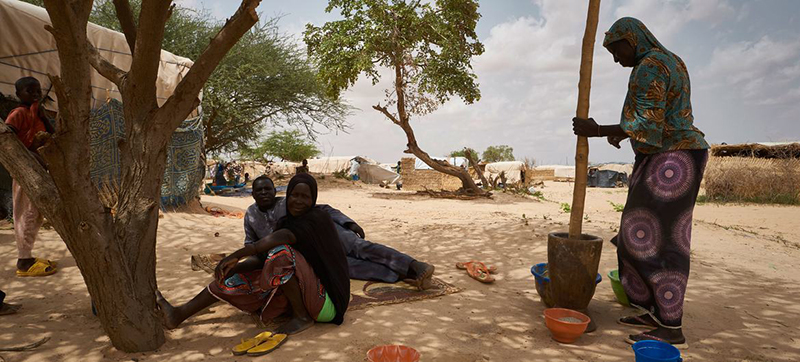 Niger
Niger
Niger joins crucial UN transboundary water-sharing accord
New York: Niger announced on Thursday that it is to join a key UN water-sharing agreement with its Lake Chad neighbours in the increasingly drought-prone Sahel region.
The development comes ahead of the UN water summit in New York next month, where countries will gather to find solutions to tensions caused by water scarcity.
‘Decisive step’
Niger’s decision to accede to the Water Convention is a “decisive step” for the region since it gives Lake Chad – whose volume has shrunk by more than 90 per cent since 1963 – full legal protection under the Convention’s framework.
Equally important is the opportunity all Parties to the accord now have to make progress together on water access, sanitation, hygiene and health, said UNECE, the UN body tasked with implementing the Convention.
“Water scarcity in particular threatens the livelihoods of millions of people who depend on rain-fed agriculture and livestock,” UNECE explained. “In recent decades, competition for land, water, and food has intensified in the region, leading to increased instability, particularly around Lake Chad and in the Niger River basin.”
Chad and Cameroon are already parties to the Convention and Nigeria is in the process of becoming a signatory, too.
For Niger, the decision to join the agreement is significant, because it shares 90 per cent of its water resources with its neighbours.
Water needs rise
The landlocked West African country faces many other looming problems linked to its water needs, as demand rises in line with its growing population, and as urbanization, farming and industrialization contribute to existing pressures on the shared resource.
The UN has previously warned that the drying up of Lake Chad could impact heavily on the 30 million people living around it, as they compete over water, with forced migration and conflicts the result.
Food stocks dwindling
Fish production has recorded a 60 per cent decline, while pasturelands have been degraded, resulting in a shortage of animal feed, livestock and biodiversity, UNECE noted.
“The Water Convention constitutes a legal framework whose implementation, in addition to regional frameworks and national instruments, will certainly contribute to supporting our country's efforts in transboundary cooperation on our shared basins, conflict prevention, peace promotion and sub-regional integration,” said Niger’s Minister of Water and Sanitation, Adamou Mahaman.
The Water Convention – a legally binding international agreement - requires countries to prevent, control and reduce the impact of their water usage across their borders and to use transboundary waters in a reasonable and equitable way, while also promoting their sustainable management, in line with the 2030 Agenda for Sustainable Development.
Support Our Journalism
We cannot do without you.. your contribution supports unbiased journalism
IBNS is not driven by any ism- not wokeism, not racism, not skewed secularism, not hyper right-wing or left liberal ideals, nor by any hardline religious beliefs or hyper nationalism. We want to serve you good old objective news, as they are. We do not judge or preach. We let people decide for themselves. We only try to present factual and well-sourced news.







